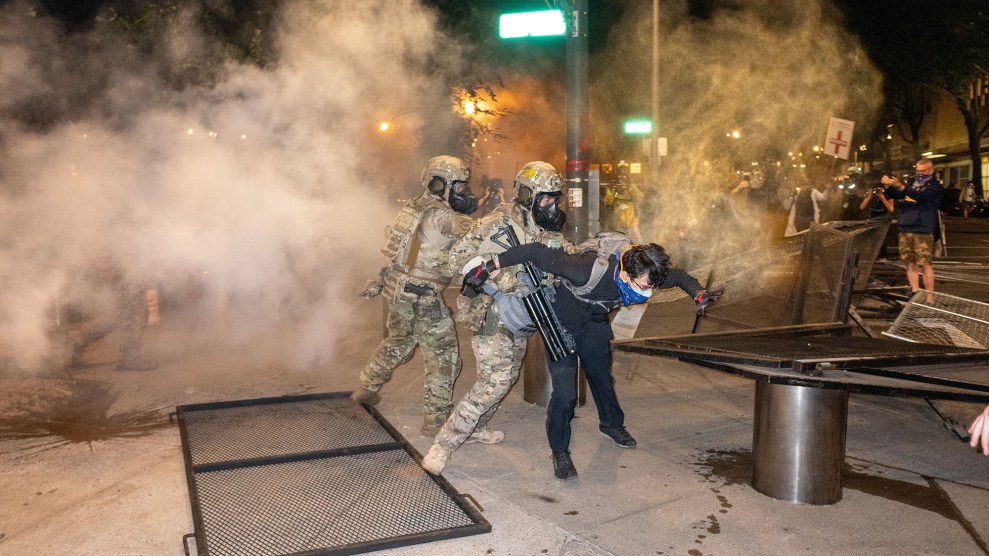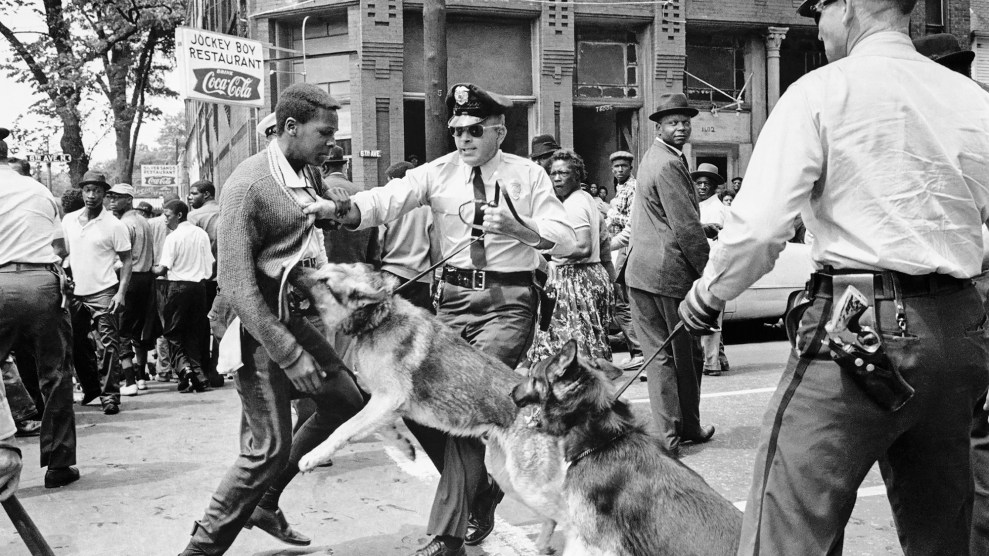In the spring of 1964, the New York Times reported that six young Black men were indicted for the murder of a shopkeeper. The article is short on context, clipped, half-said.
Two years later, James Baldwin, in his essay “A Report From Occupied Territory,” would famously tell a broader story of the arrests: The young men were dubbed “the Harlem Six”; there was little evidence that they’d done it. Two of them a week or so earlier had been brutally beaten by police officers (spit on, cursed at, taken to the hospital for X-rays because of the beatings and then beaten again) for the crime of defending children that police were also attempting to smash with billy clubs—in the children’s case for the prank of overturning a fruit stand. Marked by the cops, the two young men were among those pinned for the murder of a shopkeeper because it fit a narrative the police and the New York Times had stoked about the upheaval: A “gang” of 400 “rebel Muslims,” called the Blood Brothers, was determined to kill white people.
Daniel Hamm—one of the six men arrested—later told author Truman Nelson (whose The Torture of Mothers, a book written to present the story of the Harlem Six, prompted Baldwin’s piece) that the police beat him so badly he could barely walk but that the hospital would not admit him because he wasn’t actively bleeding.
“I had to, like, open the bruise up and let some of the bruise blood come out to show them,” Hamm explained.
I’ve heard that sentence countless times. It haunts me. And it likely will haunt you, too. It is at the center of a powerful piece of music that not only addresses complicity even amid rebellion but enacts it: Steve Reich’s “Come Out,” a song I have been playing continuously since the killing of George Floyd.
Steve Reich created “Come Out” in 1966. It is a simple song, in some ways. It begins with the quote “I had to, like, open the bruise up and let some of the bruise blood come out to show them.” This sentence is repeated. It is Hamm’s voice, again and again. That is all. There are no other instruments. And then, it is cut short. It is placed at a slight lag and repeated again. Over 13 minutes, there’s a process of cutting, clipping, lagging, and repeating. The sentence develops a rhythm. The sentence becomes impossible to parse. The sentence becomes just noise.
And, in the end, it echoes everywhere and yet you cannot even hear the words. In this idyll, are you forgetting about the violence of the sentence?
Reich is chiefly known as a leading minimalist composer, a master of an ambiance that can be miscategorized as ambivalence. He is known for creating repeating rhythms that induce a haze, sometimes a calm. If you didn’t know his work deeply, you could guess this is background music. It is “chill.” But Reich has never shied away from the political; “he has addressed the Israeli-Palestinian conflict, American racism, the Holocaust, the encroachment of technology, and, now, Islamic terrorism,” notes Alex Ross. His point, it seems, is that this is the background of American life. He is confronting white listeners: Your calm is built on a violence done to someone else. Either the violence becomes a monotone drone or you were never really listening at all.
Reich is one of the few composers to bring a listener through the process of how white people become complicit. Baldwin takes a similar journey in his piece, playing out a long sequence of explaining why Black people are disenfranchised and how it is ignored and how it leads to violent summers of upheaval. “Of course, we will be sitting on a powder keg all summer,” Baldwin concludes. “Of course, the powder keg may blow up; it will be a miracle if it doesn’t.”
At the end of “Come Out,” the sentence is bouncing off itself like an explosion. And yet one you can ignore, as it fades.










